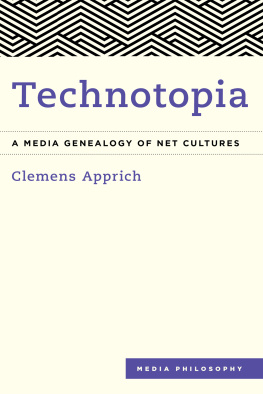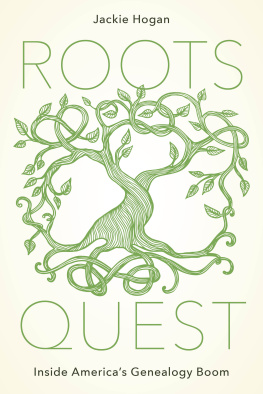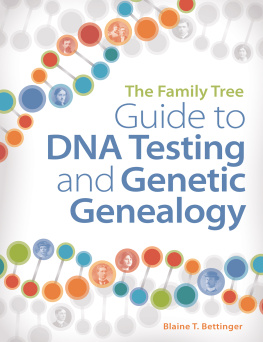Apprich Clemens - Technotopia: a media genealogy of Net cultures
Here you can read online Apprich Clemens - Technotopia: a media genealogy of Net cultures full text of the book (entire story) in english for free. Download pdf and epub, get meaning, cover and reviews about this ebook. City: London [England] New York, year: 2017, publisher: Rowman & Littlefield International, genre: Politics. Description of the work, (preface) as well as reviews are available. Best literature library LitArk.com created for fans of good reading and offers a wide selection of genres:
Romance novel
Science fiction
Adventure
Detective
Science
History
Home and family
Prose
Art
Politics
Computer
Non-fiction
Religion
Business
Children
Humor
Choose a favorite category and find really read worthwhile books. Enjoy immersion in the world of imagination, feel the emotions of the characters or learn something new for yourself, make an fascinating discovery.
- Book:Technotopia: a media genealogy of Net cultures
- Author:
- Publisher:Rowman & Littlefield International
- Genre:
- Year:2017
- City:London [England] New York
- Rating:5 / 5
- Favourites:Add to favourites
- Your mark:
- 100
- 1
- 2
- 3
- 4
- 5
Technotopia: a media genealogy of Net cultures: summary, description and annotation
We offer to read an annotation, description, summary or preface (depends on what the author of the book "Technotopia: a media genealogy of Net cultures" wrote himself). If you haven't found the necessary information about the book — write in the comments, we will try to find it.
Technotopia: a media genealogy of Net cultures — read online for free the complete book (whole text) full work
Below is the text of the book, divided by pages. System saving the place of the last page read, allows you to conveniently read the book "Technotopia: a media genealogy of Net cultures" online for free, without having to search again every time where you left off. Put a bookmark, and you can go to the page where you finished reading at any time.
Font size:
Interval:
Bookmark:
Technotopia
Media Philosophy
Series editors: Eleni Ikoniadou, Lecturer in Media and Cultural Studies at the London Graduate School and the School of Performance and Screen Studies, King ston University .
Scott Wilson, Professor of Cultural Theory at the London Graduate School and the School of Performance and Screen Studies, Kingston University.
The Media Philosophy series seeks to transform thinking about media by inciting a turn towards accounting for their autonomy and eventness, for machine agency and for the new modalities of thought and experience that they enable. The series showcases the transcontinental work of established and emerging thinkers whose work engages with questions about the reshuffling of subjectivity, of temporality, of perceptions and of relations vis--vis computation, automation and digitalisation as the current twenty-first-century conditions of life and thought. The books in this series understand media as a vehicle for transformation, as affective, unpredictable and non-linear, and move past its consistent misconception as pure matter-of-fact actuality.
For Media Philosophy, it is not simply a question of bringing philosophy to bear on an area usually considered an object of sociological or historical concern, but of looking at how developments in media and technology pose profound questions for philosophy and conceptions of knowledge, being, intelligence, information, the body, aesthetics, war and death. At the same time, media and philosophy are not viewed as reducible to each other's internal concerns and constraints and thus it is never merely a matter of formulating a philosophy of the media; rather the series creates a space for the reciprocal contagion of ideas between the disciplines and the generation of new mutations from their transversals. With their affects cutting across creative processes, ethico-aesthetic experimentations and biotechnological assemblages, the unfolding media events of our age provide different points of intervention for thought, necessarily embedded as ever in the medium of its technical support, to continually reinvent itself and the world.
The new automatism is worthless in itself if it is not put to the service of a powerful, obscure, condensed will to art, aspiring to deploy itself through involuntary movements which none the less do not restrict it.
Eleni Ikoniadou and Scott Wilson
Titles in the series:
Software Theory , Federica Frabetti
Media After Kittler , edited by E leni Ikoniadou & Scott Wilson
Chronopoetics : The Temporal Being and Operativity of Technological Media , Wolfgang Ernst , Translated by Anthony Enns
The Changing Face of Alterity : Communication , Technology and Other Subjects edited by D avid J. Gunkel , Ciro Marcondes Filho & Dieter Mersch
Algorithmic Catastrophe : On the Contingency and Necessity of Technical Systems , Yuk Hui
Technotopia : A Media Genealogy of Net Cultures , Clemens Apprich
Technotopia
A M edia Genealogy o f Net Cultures
Clemens Apprich
Translated by Aileen Derieg

London New York
Published by Rowman & Littlefield International Ltd
Unit A, Whitacre Mews, 26-34 Stannary Street, London SE11 4AB
www.rowmaninternational.com
Rowman & Littlefield International Ltd.is an affiliate of Rowman & Littlefield
4501 Forbes Boulevard, Suite 200, Lanham, Maryland 20706, USA
With additional offices in Boulder, New York, Toronto (Canada), and Plymouth (UK)
www.rowman.com
Copyright 2017 Clemens Apprich
All rights reserved . No part of this book may be reproduced in any form or by any electronic or mechanical means, including information storage and retrieval systems, without written permission from the publisher, except by a reviewer who may quote passages in a review.
British Library Cataloguing in Publication Data
A catalogue record for this book is available from the British Library
ISBN: HB 978-1-7866-0313-5
Library of Congress Cataloging-in-Publication Data
Names: Apprich, Clemens, author.
Title: Technotopia : a media genealogy of Net cultures / Clemens Apprich.
Description: Lanham : Rowman & Littlefield International, 2017. | Series: Media philosophy | Includes bibliographical references and index.
Identifiers: LCCN 2017030697 (print) | LCCN 2017036039 (ebook) | ISBN 9781786603159 (Electronic) | ISBN 9781786603135 (cloth : alk. paper)
Subjects: LCSH: InternetSocial aspects. | CyberspacePhilosophy. | Digital media.
Classification: LCC HM851 (ebook) | LCC HM851 .A735 2017 (print) | DDC 302.23/1dc23
LC record available at https://lccn.loc.gov/2017030697
 The paper used in this publication meets the minimum requirements of American National Standard for Information SciencesPermanence of Paper for Printed Library Materials, ANSI/NISO Z39.48-1992.
The paper used in this publication meets the minimum requirements of American National Standard for Information SciencesPermanence of Paper for Printed Library Materials, ANSI/NISO Z39.48-1992.
Printed in the United States of America
The author is grateful to the following institutions for their support in the writing of this book.



In Memory of Armin Medosch
Contents
Like net cultures, this publication is a hybrid. It is a translated, yet revised and substantially extended version of my German book Vernetzt Zur Entstehung der Netzwerkgesellschaft from 2015. The first and the last chapters of this edition are new, everything in between is a thoroughly modified version of what appeared in the original edition, in order to speak to a more international audience. I want to thank my publisher in Germany, transcript, for permitting me to rework the book, as well as my English publisher, Rowman & Littlefield International, for their substantial support throughout the whole process, in particular Isobel Cowper-Coles, Eleni Ikoniadou, Scott T. Wilson and the Project Manager, Jayanthi Chander. I would also like to thank the anonymous reviewers of the book proposal for their insightful comments, as well as my colleagues and friends Claus Pias, Timon Beyes, Wendy Hui Kyong Chun, Ned Rossiter, Orit Halpern, Felix Stalder, Gerald Raunig, Jussi Parikka, Ulf Wuggenig, Gtz Bachmann, Armin Beverungen, Marcell Mars, Tomislav Medak, Nishant Shah, Oliver Lerone Schultz, Josephine Berry, Anthony Iles, Felipe Fonseca, Paulo Lara, Nelly Y. Pinkrah and Inga Luchs for their comments and input. Special thanks to the Centre for Digital Cultures at Leuphana University of Lneburg, not only for the financial and institutional support of this book project, but also for the ongoing opportunity to work with so many outstanding people. The creative and unique atmosphere of the centre has greatly influenced this work.
This book has also been influenced by a number of other sites and people. First of all, there is the Institute for New Culture Technologies/Public Netbase in Vienna, which, during my studies in philosophy and politics, was the first place for me to go, seeking for answers regarding a society increasingly determined by new media technologies. Then there is the Ludwig Boltzmann Institute for Media Art Research in Linz, as well as the Institute for Human Sciences in Vienna, both of which were of great help to me. And most recently, there are the Post-Media Lab and Making Change, two projects to which I owe a lot. Last but not least, many of the ideas in this book are due to a multitude of encounters, conversations and discussions with people who actually shaped the history of net cultures. Although most of these are only presented in an abbreviated form here, this book would not have been possible without the thought-provoking impulses from Konrad Becker, Martin Wassermair, Wolfgang Stzl, Katja Diefenbach, Mike Bonanno, Pit Schultz, Diana McCarty, Andreas Broeckmann, Robert Sakrowski, Marleen Stikker, Joachim Blank, Karl Heinz Jeron, Brian Holmes, Rasa Smite, Eric Kluitenberg, David Garcia and Geert Lovink and, in particular, Armin Medosch, a true net pioneer and pirate, who was among the first I discussed my ideas on critical net cultures with and who offered me the opportunity to present them at an early stage. This book is dedicated to him.
Next pageFont size:
Interval:
Bookmark:
Similar books «Technotopia: a media genealogy of Net cultures»
Look at similar books to Technotopia: a media genealogy of Net cultures. We have selected literature similar in name and meaning in the hope of providing readers with more options to find new, interesting, not yet read works.
Discussion, reviews of the book Technotopia: a media genealogy of Net cultures and just readers' own opinions. Leave your comments, write what you think about the work, its meaning or the main characters. Specify what exactly you liked and what you didn't like, and why you think so.









